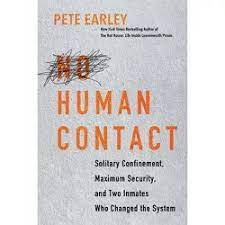John Fetterman shines a light on dark days and nights
Mr. Fetterman, then Pennsylvania’s lieutenant governor, suffered a stroke last May, and his health became an issue during the campaign. Declaring he was fighting for everyone “that ever got knocked down,” he defeated Mehmet Oz, the celebrity television host, for the Senate seat. Then, a dark cloud appeared to envelop him after Election Day.

 “Sitting silently thinking and screaming 4 freedom from this constant insanity and endless solitary confinement.” Drawing by Thomas Silverstein about being in isolation for years. (Copyrighted Pete Earley Inc.)
“Sitting silently thinking and screaming 4 freedom from this constant insanity and endless solitary confinement.” Drawing by Thomas Silverstein about being in isolation for years. (Copyrighted Pete Earley Inc.) 





